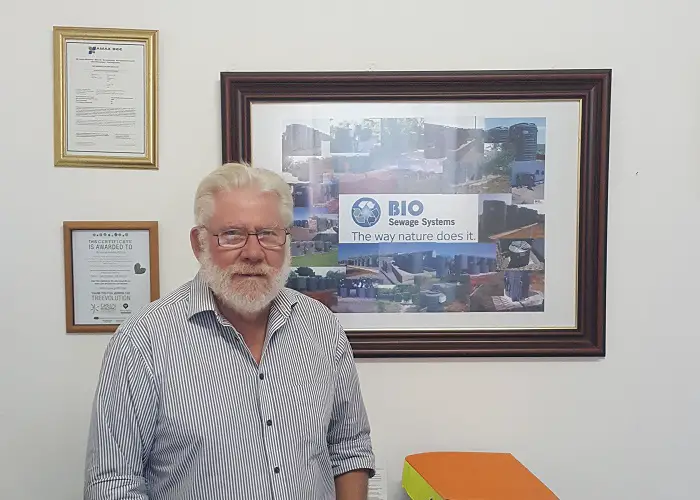Leon Du Casse is the Managing Director of Bio Sewage Systems Pty Ltd. Bio Sewage Systems offer innovative waste water treatment solutions that help you to save water and do your part towards saving the planet. Bio Sewage Systems design, manufacture and commission innovative modular and/or mobile Wastewater Treatment systems for domestic, commercial or industrial application in Southern Africa and Internationally.
Their multi-stage systems are designed to breakdown waste water using mechanisms inspired by nature, and by using a series of anaerobic, anoxic and aerobic reactors, their systems deliver effective and economical sewage treatment.
Construction Review Magazine had a moment of interview with Leon Du Casse, Bio Sewage Systems Managing Director concerning wastewater treatment technology in South Africa and this is what he had to say about the industry.
CR: How does Biosewage see the South African wastewater treatment market?
Leon: The South African market is very big and it is getting bigger, with the population growing and municipalities not being able to keep up with this expansion on infrastructure the smaller wastewater treatment plants are an option on solving this
CR: Which are the most popular wastewater treatment methods being applied in South Africa currently?
Leon: I would think that the most common technology used is Sequential Batch reactors, but there are also many towns that use maturation ponds
CR: What are the challenges in the South African market in terms of installation, application and maintenance?
Leon: There is no shortage of people to do installations throughout South Africa, but there is a problem with the ongoing maintenance on these plants
CR: What do you think can be done to overcome these challenges?
Leon: The powers that be need to take responsibility for running and maintaining these facilities to ensure that the treated water meets the required standards and is reused responsibly
CR: How is the future of wastewater treatment in South Africa looking?
Leon: People are starting to realise that water is a very precious resource which we can’t survive without clean water, and that we need to start to plan for the next fifty years on how we are going to keep up with the fast growing populations needs on water and food.

Leave a Reply